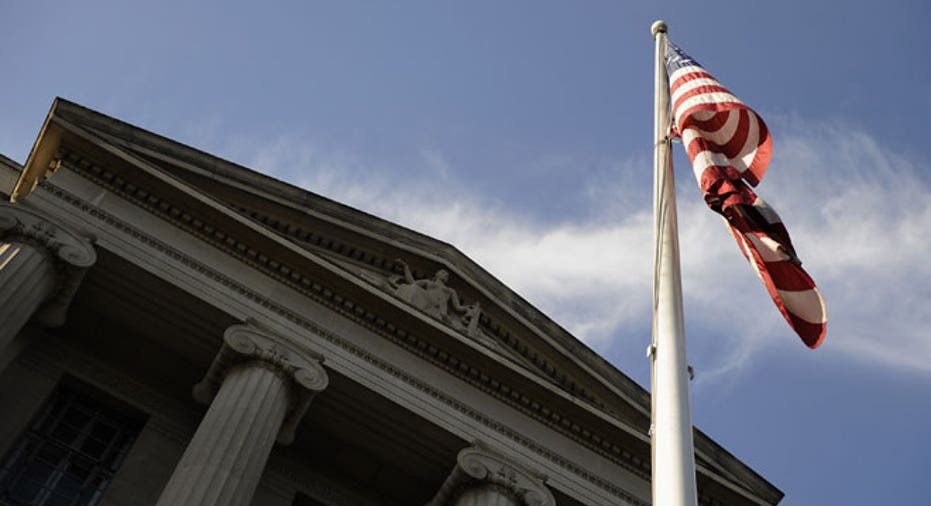People Commit Fraud, Not Banks

There has to be a middle-ground somewhere between arresting top Wall Street executives simply to satiate the public’s thirst for scalps and letting everyone off the hook by negotiating huge settlements.
Federal prosecutors seem to have come full circle over the past decade with regard to their investigations into big-time white collar crime.
In the early 2000s the government successfully prosecuted a number of top executives for financial misdeeds, landing more than a few of them behind bars.
I interviewed a handful of them for an article on FOXBusiness.com, and asked them what they thought about the government’s new approach of negotiating massive settlements with alleged Wall Street reprobates rather than filing criminal charges against individuals suspected of wrong-doing or their companies.
I was surprised that most of the former executives I spoke with endorsed the settlements. I was expecting a lot of pent-up frustration, sentiments along the lines of ‘why us and not them?’
But I didn’t get it.
Richard Scrushy, the former CEO of HealthSouth who endured two government trials, one for fraud in 2005 and another for bribery in 2006, was thoughtful, reasonable and articulate in his defense of settlements over criminal indictments and trials.
Public Better Served by Deals?
Investigations into white-collar crime are costly and time consuming, he said. Instead of spending millions of dollars in taxpayers’ money pursuing a handful of rogue executives, the government and taxpayers are far better served by collecting billions of dollars in fines and demanding reforms, Scrushy explained.
Dennis Kozlowski, who ran Tyco International until he was charged in 2002 with using company funds for his personal use, agreed that the greater good is probably served by levying fines rather than pursuing criminal charges that could threaten a company’s existence, putting thousands of jobs at stake.
He cited the big accounting firm Arthur Andersen as an example of what can happen when the government files criminal charges against a company, effectively labeling it a criminal enterprise. Arthur Andersen was pulled apart and its pieces sold off in 2002 after getting dragged down in the Enron scandal.
I have to respectfully disagree with Scrushy and Kozlowski, however.
I have no problem with the big settlements. But do the two approaches have to be mutually exclusive? Do big settlements have to preclude the filing of charges against people who might have committed fraud?
It seems that way.
So far just one Wall Street “executive,” former Goldman Sachs (NYSE:GS) bond salesman Fabrice Tourre, has gone to trial on charges that pierce right to the heart of the shenanigans that nearly buckled the global economy in 2008. A jury of Tourre’s peers found him guilty last year of committing fraud.
Tourre’s job at Goldman Sachs was focused on a task that was routine across Wall Street in the run up to the financial crisis – he and his colleagues were creating complicated investment products filled with mortgage loans that were destined to go sour.
Despite knowing that these products were likely to lose value, Tourre – and many of his peers in finance – allegedly told investors that the products were sound investments. When the investments collapsed it set off a domino effect that helped bring about the financial crisis.
People Not Banks Make Decisions
Those allegations lie at the core of billions of dollars in settlements in recent years between the government and Goldman Sachs, JPMorgan Chase (NYSE:JPM), Citigroup (NYSE:C) and Bank of America (NYSE:BAC), among others.
Consider the Tourre case for a moment. Tourre was 26 years old at the time he was creating and selling the products in question that led to his conviction. Does anyone really believe he was the highest ranking person at Goldman Sachs signing off on the huge investment bank’s method for creating and selling these types of securities?
Put another way, Tourre had bosses, people who formulated Goldman’s long-term business strategies, yet none of them have been charged with fraud. Tourre apparently worked in a vacuum at Goldman.
On a much larger scale, the government’s endless parade of massive settlements in recent years have all been with banks, huge multinational corporations with branches and divisions around the globe. But these sprawling operations are run by people, and people ultimately made the decisions that the government has in many instances described as fraud.
I’m at a loss as to why Tourre is the only person to date to have been held accountable for those decisions.



















